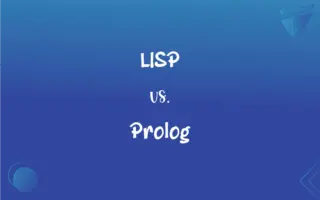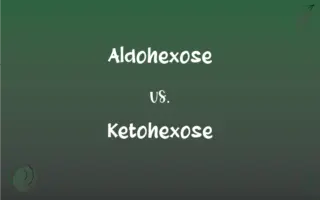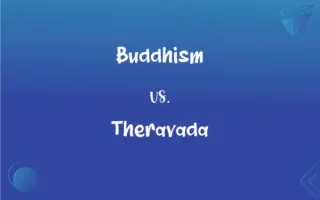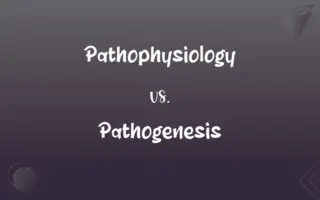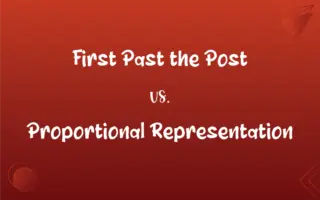Inquiry vs. Investigation: What's the Difference?
Edited by Aimie Carlson || By Harlon Moss || Published on December 14, 2023
An inquiry is a process of seeking information or understanding, while an investigation is a detailed and systematic examination, often to uncover facts.
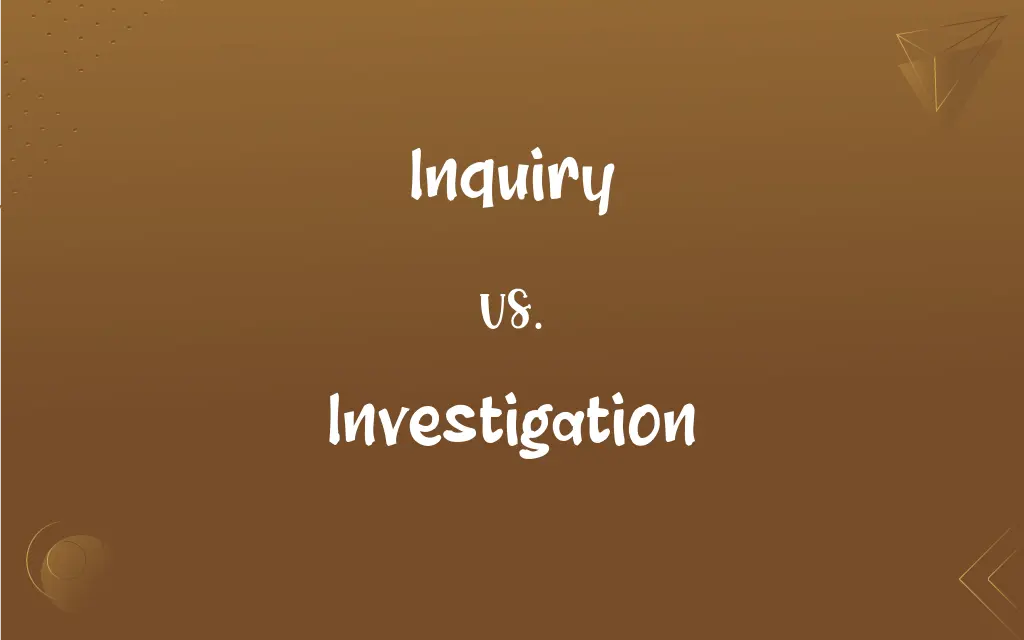
Key Differences
An inquiry is often a general questioning or a request for information, covering a broad range of subjects. An investigation, however, is a more detailed and systematic examination, typically focused on a specific issue or allegation.
Inquiries are aimed at gaining knowledge, understanding, or information, possibly leading to more formal actions. Investigations are conducted with the purpose of uncovering facts, resolving uncertainties, or gathering evidence, often in a legal or official capacity.
Inquiries can be informal, involving asking questions or conducting basic research. Investigations involve methodical processes, often requiring specialized skills, such as gathering and analyzing evidence, conducting interviews, and following legal procedures.
The outcome of an inquiry may be increased knowledge or the clarification of information. In contrast, an investigation may lead to legal action, resolution of disputes, or formal findings and conclusions.
Comparison Chart
Purpose
To gather information or understand
To uncover facts, often for legal reasons
ADVERTISEMENT
Scope
Broad and general
Specific and detailed
Methodology
Can be informal, like questioning
Systematic and methodical
Depth
Surface-level understanding
In-depth examination and analysis
Possible Outcomes
Knowledge acquisition, clarification
Legal action, resolution of issues
Inquiry and Investigation Definitions
Inquiry
Inquiry refers to the act of asking questions to gain information.
She made an inquiry about the library's closing hours.
ADVERTISEMENT
Investigation
Investigation means a detailed examination or analysis.
The police launched an investigation into the robbery.
Inquiry
Inquiry involves exploring a subject or idea.
The student's inquiry into history sparked a deeper interest.
Investigation
Sometimes, it means a scientific study to find new information.
The scientific investigation yielded important data.
Inquiry
It can mean a process of seeking knowledge or information.
His scientific inquiry led to significant discoveries.
Investigation
It can refer to a legal process to uncover facts.
The attorney called for an investigation to gather evidence.
Inquiry
It can also refer to a formal request for information.
He submitted an inquiry to the city council regarding the new policy.
Investigation
It can also imply close scrutiny or inspection.
The investigation into the company's finances revealed discrepancies.
Inquiry
Sometimes, it means a preliminary investigation.
The police made a brief inquiry into the incident.
Investigation
It involves conducting in-depth research in a systematic way.
Her investigation into the cause of the accident was thorough.
Inquiry
The act of inquiring
Engaged in scientific inquiry.
Investigation
The act or process of investigating
A politician under investigation.
Inquiry
A question; a query
There were many inquiries about the new tax rates.
Investigation
A careful examination or search in order to discover facts or gain information.
FAQs
What is an inquiry?
An inquiry is the act of asking for information or understanding a subject.
How do inquiries and investigations differ in purpose?
Inquiries are for information or understanding, while investigations aim to uncover specific facts.
Who can conduct investigations?
Investigations can be conducted by authorities, professionals, or experts in various fields.
Can an inquiry lead to an investigation?
Yes, inquiries can lead to formal investigations if they reveal complex issues.
Is an inquiry a formal process?
Inquiries can be both formal and informal, depending on the context.
Can anyone initiate an inquiry?
Yes, anyone can initiate an inquiry by asking questions or seeking information.
Are investigations always legal in nature?
Investigations often have legal implications, but they can also be academic or scientific.
Can an inquiry be about personal interests?
Yes, inquiries can be about personal interests or general curiosity.
What legal powers do investigators have?
Legal investigators may have powers like subpoenaing evidence or conducting searches, depending on jurisdiction.
What is an investigation?
An investigation is a systematic and detailed examination to uncover facts.
Is documentation important in inquiries?
Documentation can be important, especially in formal inquiries for record-keeping.
What tools are used in investigations?
Investigations may use tools like interviews, research, forensic analysis, and surveillance.
What roles do experts play in investigations?
Experts provide specialized knowledge and skills crucial for complex investigations.
Are investigations always conclusive?
Investigations aim to be conclusive, but they may not always provide definitive answers.
Do inquiries require special skills?
Inquiries generally don't require special skills, but effective questioning can be beneficial.
How important is evidence in investigations?
Evidence is crucial in investigations for substantiating findings.
Can inquiries be done anonymously?
Inquiries, especially informal ones, can often be made anonymously.
What is the typical duration of an investigation?
The duration of an investigation varies greatly depending on its complexity and scope.
Can the outcome of an inquiry affect policies?
Yes, inquiries, especially formal ones, can lead to changes in policies or practices.
Are investigations confidential?
Many investigations, especially legal ones, are confidential until conclusions are reached.
About Author
Written by
Harlon MossHarlon is a seasoned quality moderator and accomplished content writer for Difference Wiki. An alumnus of the prestigious University of California, he earned his degree in Computer Science. Leveraging his academic background, Harlon brings a meticulous and informed perspective to his work, ensuring content accuracy and excellence.
Edited by
Aimie CarlsonAimie Carlson, holding a master's degree in English literature, is a fervent English language enthusiast. She lends her writing talents to Difference Wiki, a prominent website that specializes in comparisons, offering readers insightful analyses that both captivate and inform.




















































